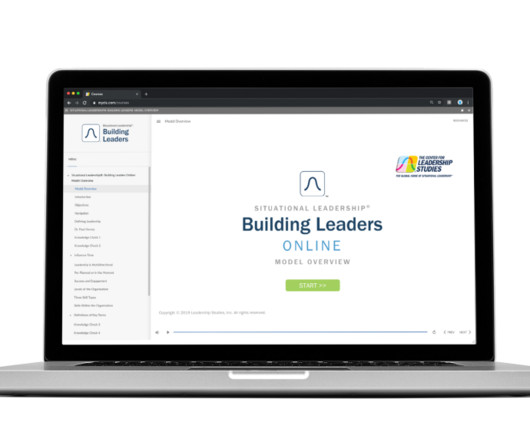Investing in a Performance Culture
The Center For Leadership Studies
MAY 11, 2023
At The Center for Leadership Studies, we are known for building leaders. Multidirectional influence is more important than ever, and followers play an increasingly significant role in the leadership process. The leader-follower relationship is a two-way dynamic. We call this a performance culture.















Let's personalize your content